The monsoons shine in August when the weather is cool and the grass is verdant. Envision yourself on the road in such conditions, taking in the beautiful scenery and feeling at peace. Although the rainy season may not be for the impatient, it is perfect for the risk-takers and nature lovers among us. You’re in luck if you fall into the second category since August is the best time to visit India.
Italy
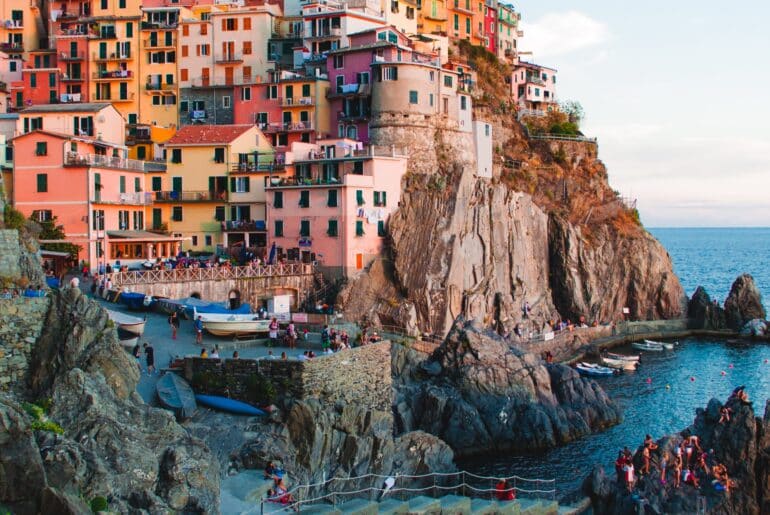
In the Italian calendar, August is firmly in the summer. Because many Italians take their holidays over the whole month of August, the tourist season in major cities like Rome and Florence experiences a little decline during this time as residents rush to the beaches to escape the oppressive heat and humidity. That is to say, there are perks and drawbacks to visiting Italy in August, and they vary according to the kind of trip you’re planning and how well you handle the heat. Know what to expect in August before you even touch down by reading up on the month.
Spain
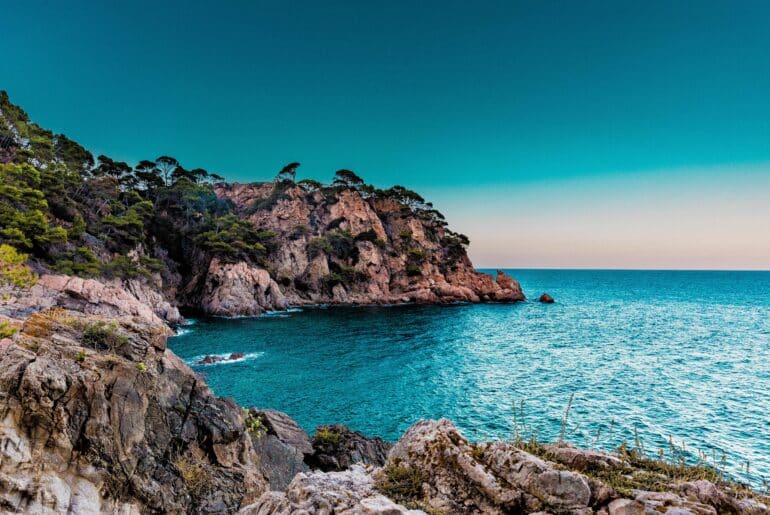
In general, the weather in Spain changes with the seasons. August is often considered Spain’s hottest month for anyone looking to escape the heat. This month, most of the year’s tourists go to popular vacation spots, including beaches and landmarks. In August, Bangkok typically sees temperatures of 31.3 degrees Celsius. Around six hours a day in August, the sun bathes the soil of this lavish slice of paradise. The daytime temperatures are rather warm and muggy, while the nighttime temperatures gradually drop.
This month generally has an average humidity level of roughly 38%. Midway through the month, you’ll notice a temperature drop due to the 63. 5 mm of rain that falls on Spain throughout August. Enjoy the greatest conditions for scuba diving, snorkelling, and jet skiing on the world’s beaches. While temperatures in Spain may rise to uncomfortable levels in August, you shouldn’t let that prevent you from planning a trip.
Portugal
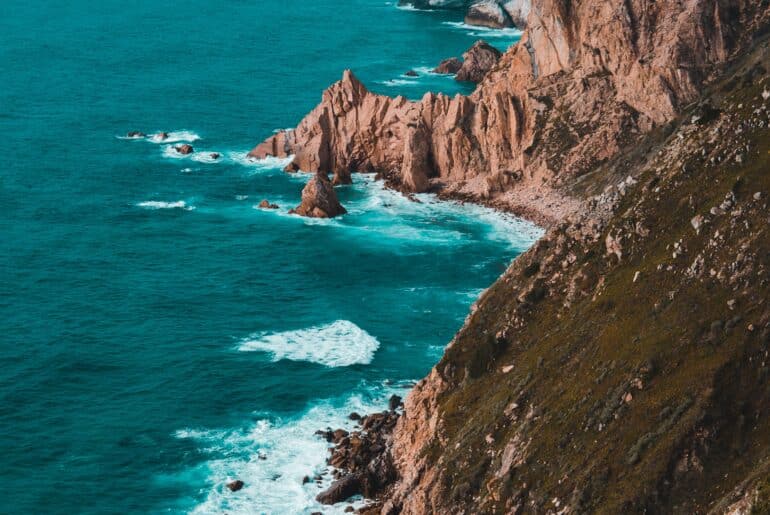
Now is the time to take advantage of the ample dry, sunny days and pleasant nights by enjoying sundowners by the sea, eating at outdoor cafés, and dining al fresco. Porto, located in the country’s north, has an average temperature of around 77 degrees Fahrenheit (25 degrees Celsius), making it a pleasure rather than an oppressive place to spend time. Highs in Lisbon are about 28 degrees Celsius (82 degrees Fahrenheit), and there is very little precipitation throughout the year. In the Algarve, where temperatures average about 30 degrees Celsius (86 degrees Fahrenheit), it may be exhausting to go from one beach to another.Protect yourself from the sun’s rays (particularly if you’ll be spending time near the water) by packing sunscreen and a hat, and drink plenty of water.
Croatia
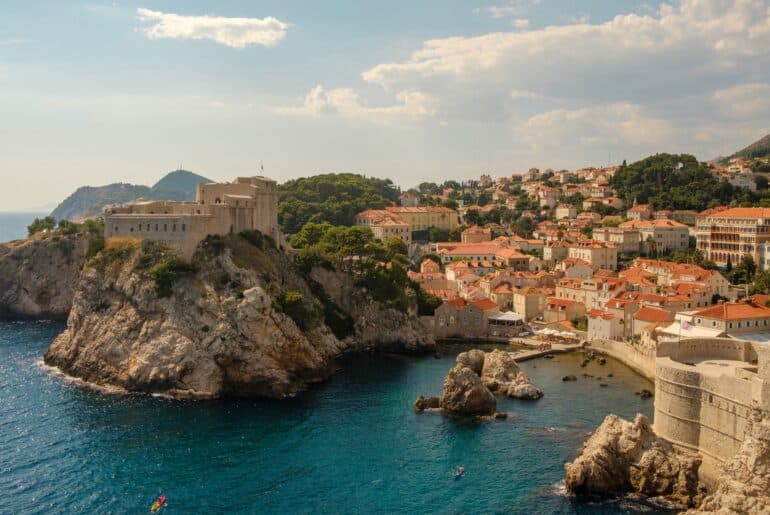
August in Croatia is a great time to visit because of the mild temperatures and clear skies. The temperature is comfortable in the range of 22 and 30 degrees Celsius. But the sea always stays between 23 and 25 degrees Celsius, making it warm and ideal for swimming and other water sports. This is a fantastic month to go cliff jumping, ziplining, island hopping, and bar hopping. Make the right preparations, and you will have valuable fun in Croatia. Located on the Adriatic Coast in the Balkans, Croatia is a very attractive nation.
Beautiful waterfalls, intriguing islands, historic cities, lively bars, and other attractions may all be found there. Water sports, adventure trekking, paragliding, kayaking, and parties are just a few August activities in Croatia. Learn more about the country’s climate, culture, cuisine, and more to make the most of your time there.
Kenya

Among the months of Kenya, August is the second-coldest. This implies that whatever fears you may have had about the blazing heat of the savannas are unfounded. August in Kenya is pleasant because of the warm weather. The evenings in Kenya may be pretty cool, so bringing some extra garments is a good idea. Although August is one of the coldest months in Kenya, it is also one of the driest. Outside of the Rift Valley region, precipitation is abnormally high.
Scotland
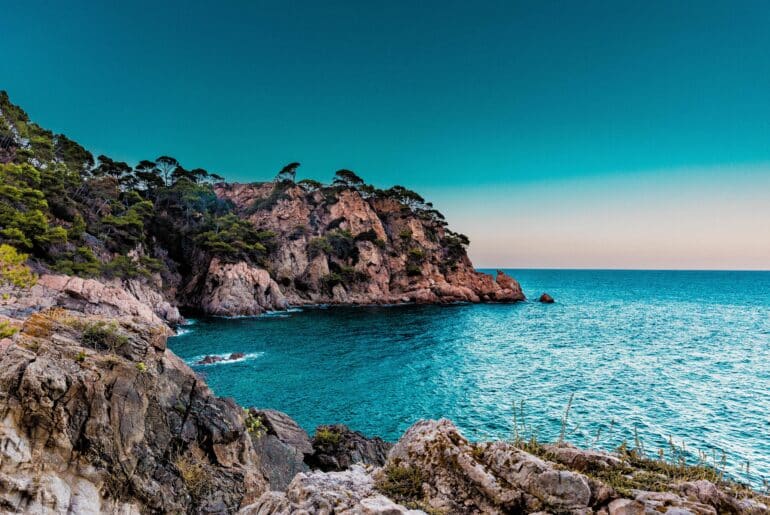
It’s the longest day of the year, lasting as long as 15 hours, making this the final full month of summer and the best time to see Scotland’s natural treasures. Temperatures are high, with only July being hotter, and rain is likely, but the amount will vary depending on your location.
The western part of Scotland is more likely to see wind and rain from the North Atlantic, while the eastern half enjoys more sunlight and only sometimes has haar (sea fret), chilly fog from the North Sea that may ruin a day at the beach or on the links. Sea-level temperatures in Scotland are typically stable, whereas higher altitudes see a cooling trend.In August, the temperature ranges from as high as 64 degrees Fahrenheit (18 degrees Celsius) in Edinburgh to as low as 52 degrees Fahrenheit (11 degrees Celsius) on Britain’s tallest mountain, Ben Nevis, at 4,413 feet (1,345 metres).
It’s the longest day of the year, lasting anywhere from 13 to 15 hours, making August a great time to visit Scotland and take in the country’s natural wonders. You may anticipate some rain, but how much depends on your location since this is one of the year’s hottest months (together with July). The western part of Scotland is more likely to experience rain and wind from the North Atlantic, while the eastern half has more sunlight and, on occasion, haar (sea fret), chilly fog from the North Sea that may ruin a day at the beach or a game of golf.
Lastly, read more about travel around the world here.




